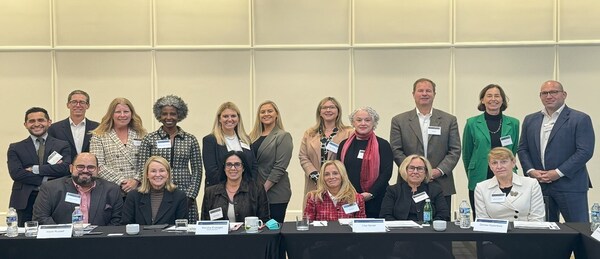


Culture and Talent Governance Summit: A dialogue on culture, risk, and talent management
WASHINGTON, Oct. 24, 2024 /PRNewswire/ -- Boards of directors are calling for new strategies for human capital, in a challenging labor market and an environment of low trust and tough public scrutiny. Tapestry Networks' Culture and Talent Governance Summit convened board directors, senior ethics & compliance executives, senior talent professionals, and other key stakeholders for a dialogue on oversight of corporate culture, talent management, succession planning, and executive compensation. The summit featured a case study on rebuilding corporate culture after a crisis, a session on trends in executive compensation and talent strategy, and a discussion about navigating critical social and geopolitical issues. Special guests included executives from CMPC, a multinational pulp and paper company, Meridian Compensation Partners, and Edelman Smithfield. Leaders from organizations such as Celsius Holdings, Covington & Burling LLP, Exelon, FirstEnergy, Hasbro, PNC Financial, Kroger, Lockheed Martin, PVH, SAIC, Tyson Foods, and the U.S. Department of Veteran Affairs joined and contributed to the dialogue.
Participating leaders were clear: the war for talent is real. Getting compensation right is crucial but is only part of an effective talent strategy. Participants agreed on the need to embrace employee priorities such as rapid career development, mobility, flexibility, and work-life balance. They pointed to a unique moment to reshape the workplace: "We may be overlooking a critical opportunity to hear the labor market's concerns about work culture. I don't see leaders seeking feedback from the workforce. We're trying to fight with the last tool rather than reimagining what work could be like. This could be a moment of real creativity, but we keep trying to go back to the past."
As part of this, both employees and consumers can pressure companies to speak out on political issues. They can interpret a company that fails to communicate a decisive stance as either indifferent or concealing something. But taking a stand brings its own risks, and leaders need to consider carefully how and when to make a public commitment, and, more importantly, how to follow communication with action. "Staying true to your company's identity is crucial. It's not enough to make statements; people ask, 'What are you doing about it?'"
Participants described how corporate misconduct can inflict severe legal, financial, and reputational damage, eroding trust among customers, employees, and partners. Trust often takes years of hard work to rebuild. Fostering a reputation of integrity and a culture behind that reputation requires transparency and open acknowledgement of failures. "The only way forward was to learn from our mistakes and adopt best practices. A major shift in our core values came when we went against the grain and embraced vulnerability. It opened the door to learning in a culture where failure was once not an option."
Jonathan Day, Tapestry Networks' chief executive, commented, "The issues that the leaders debated at the Washington summit show up in hundreds of conversations we conduct each year, across every one of our networks. The need for solutions has never been greater. Until we find better ways to oversee culture and talent, we won't have sustainable businesses."
About Tapestry Networks
Tapestry Networks brings world-class leaders together to tackle complex challenges and promote positive change through the power of connected thinking. Learn more at: https://www.tapestrynetworks.com/.
Media Relations Contact:
Amy Christenson, Tapestry Networks Managing Director, Operations
achristenson@tapestrynetworks.com
SOURCE Tapestry Networks